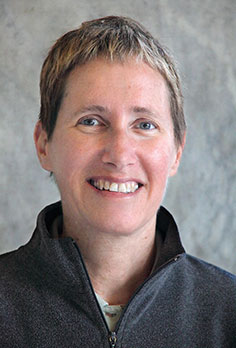Conversation about Masada
with Professor Jodi Magness

Jodi Magness is a Classical and Biblical archaeologist specializing in ancient Palestine (modern Israel, Jordan, and the Palestinian territories) from the time of Jesus up to the tenth century.
Recently she was kind enough to be interviewed, and I was thrilled to tap some of her knowledge on the topic upon which my first novel is based.
A prolific researcher, speaker and teacher, Jodi was delightfully enthusiastic and patient when it came to explaining different aspects of her career and work to date.
What is it about Masada that first drew you to it?
I worked as a tour guide out of Ein Gedi when I finished high school, and during my dissertation (on Byzantine pottery, not Masada) I was invited by two of my professors to work on some of Yigael Yadin’s unpublished work, in particular the siege works around Masada.
This continued until I was invited to co-direct the dig in summer of 1995. We focused on the Roman camps, rather than the fortress itself. The ruins of these camps can be clearly seen even after two thousand years because it’s an arid climate and much of the building material at hand was stone, rather than wood which rots over time.
Did you discover anything unexpected during the dig of ‘95?
Yes, I was surprised to find the tent units (the Roman army camped in leather tents pitched over stone foundations) filled with lots of broken pottery, which we had restored (put back together). Nearly all of the pottery was local storage jars, which contained their food supplies.
How did Masada compare to other sites you’ve worked on?
Because we concentrated on the Roman siege works, it was one time period. We still had to dig systematically, but most other digs are multiple time periods and so as you work your way down through layers you are literally digging through time. Either way, you have to be very structured and careful to not to miss things.
Also because the Romans used stone, in the desert, and it hasn’t been built on or had pieces taken away to use on other things, it was fairly straightforward to know where to start. Roman camps are structured alike, so we knew where to anticipate certain units.
Why did it take so much pushing to write your book on Masada? (Time? Other priorities?)
Just busy doing other things. I have written several books before but because I’m quite busy teaching, doing speaking tours and working on site.
Do you imagine the people who lived there? Before, during, after the siege?
Absolutely. While the prevailing belief is that Masada was occupied by the Sicarii at the time of the siege, it makes sense that many of the people living there were refugees from the fall of Jerusalem and other places. They would have fled from the Roman advance and if they went south, Masada is a logical choice for many. So there would have been a mix of Jewish peoples, but it is difficult to correlate the archaeological evidence we have to properly identify those groups.
Tell me about the cisterns—how different was the climate and rainfall 2,000 years ago?
It actually wasn’t. There is a misconception that the Roman period was somewhat cooler and wetter than today, but the archaeological evidence about how people lived and built is that it was a similar arid climate and they adapted to the dry conditions.
The dropping of the level of the Dead Sea and sink holes around it is to do with Israel and Jordan taking water from the Jordan River, not climate change.
How do you balance teaching and speaking and going to site?
I’m very busy. I mentioned that I used to read historical fiction as a child, but the little time I get to read these days (usually on a plane to somewhere) is spent on crime fiction. Watching historical dramas is not relaxing—I pick apart everything they get wrong!
Are you still involved with Masada excavations/studies?
Currently I am not working on Masada, but if I have an opportunity in the future I would love to return to it.
What are you usually asked to speak about?
Often the Dead Sea Scrolls, or Masada, or ancient Judaism—I’ve done numerous documentaries, courses and speaking tours in addition to my academic publications and am often asked to discuss these topics. I love sharing my knowledge of this period of history, and how important it is to ask questions about the past and seek answers through archaeology. It is an evidence-based field—we dig and we research and we corroborate data, we don’t just make assumptions.
What’s coming up this year for you?
I’ve been directing the excavation of a synagogue at Huqoq since 2011, and that is still going on. Some of my colleagues believe that Jewish settlements in the Galilee area suffered and declined in the late Roman period once Christianity was officially made the religion of the Roman empire. The evidence that I’ve found is quite the contrary. Huqoq was a prosperous village with a large synogogue. We can only draw conclusions based on the data we find, however, so we keep researching and digging!
Learn more about Jodi Magness and her work on her website.